Ashley: I am very excited tonight. I have Robert Rivenbark joining me. He is an author, storyteller, and screenwriter. Thank you so much for being here.
Robert: It’s wonderful to be with you, Ashley. I’m honored and feel very privileged.
A: Oh, thank you so much. Can you let the listeners know a little bit about your background?
R: Yes. I was born in the peach state, Georgia. I grew up there and when I was in my early twenties, I won a scholarship to study in Britain, through Antioch university and was over there for a couple of years in Oxford, in London where I earned my master’s in creative writing. When I came back after that, I lived, in Palo Alto, California for several years. Then moved to Miami, Florida. I worked as a journalist and an advertising copywriter. But my great love has always been storytelling. And I’ve been doing that actually since I was in the sixth grade when my homeroom and English teacher, Mrs. Lee made me the program chairman and I wrote and directed three plays. They were all terrible imitations of horror movies that I liked back then, but it gave me a sense that I could be a storyteller. And to this day, I have been looking for Mrs. Lee to thank her for that because she changed my life.
A: Well, shout out to Ms. Lee. I’m always so grateful for the teachers who end up being such powerful influences on us, whether they realized it or not. Can you let me know how you got the idea for your novel, the cloud?
Inspiration Came In Many Forms
R: There were three influences. One was the fact that I survived the great recession in LA from 2007 to 2015. Those were very tough years. So I had a lot of experience to draw from. Also, I was in a relationship there with a lady who I adored very much, but the relationship didn’t work out. So when I started writing the novel, I decided to split her into two characters, the female protagonist and the fatal. And then the third big influence was when I got back to Atlanta, I worked for a fortune 500 commercial real estate company. I was their senior copywriter and video producer. I discovered after I’d been there a while that when they said they were building cities of the future in 75 countries, What they meant was that they were building cities of the future for the top 10% in 75 countries. The future for the other 90% looked pretty grim so I got very emotionally invested in that idea. I started reading a great number of futurists because I began to be concerned about what the future might look like. While I was working for that company, I happened to get the privilege of writing a series of articles about the city of the future. I interviewed Dr. Andrea Chegut who is the chair of the MIT real estate innovation lab. She has eight doctoral candidates who are writing dissertations as we speak about the technologies of the future that we will see in cities. I mean, even beyond self-driving cars and automated parking decks we’re talking about technologies like skyscrapers on treads that can be rolled aside to make room for new cityscape things of that kind. And then I also while I was at the company, I worked in a department that was creative and we all went as a group to the Adobe met show in Las Vegas, where they premiered all of the coming computer technology. As a part of that, they gave a presentation on the latest, greatest virtual reality technology. This was the kind of virtual reality that you had to wear a helmet to experience, but they flashed what you would see up on a gigantic theater size screen, so you could experience it. But what they said was that in 15 to 20 years, that technology is going to evolve to the point where it becomes total immersion. Meaning when you’re watching a movie or a TV show, you’re gonna be inside the drama, it will be happening all around you. So I took all of those things and blended them in my imagination to come up with a potential dystopian vision of the future.
The story I eventually wrote is kind of a spiritual descendant of the novel slide brave new world, 1984, the Handmaid’s tale. That kind of thing. It’s about what could potentially happen here in this world. If we continue to pursue the planet’s misguided application of technologies and mismanagement of people and things of that kind. I decided that I wanted to give readers hope after taking them through a very perilous journey. The male and female protagonists are trying to overthrow a corrupt regime that controls half the world and it’s the power of their love that allows them to achieve victory and also to personally evolve themselves. I was also very influenced by the philosophy of Pierre Teilhard de Chardin he was a paleontologist and a Jesuit priest who worked on paleontological teams in the early to the mid-20th century. The teams, he worked on discovered some of the key missing links that helped to prove the theory of evolution. And despite the fact that he was one of the people who helped to prove that theory, he took a very positive spin on the notion of evolution you know, traditional microbiologists and astronomers will say yes, the universe is evolving, but it’s not evolving toward anything. Eventually, you reach the point where entropy sets in and the whole thing breaks down.
Then there’s another big bang Pierre Teilhard de Chardin. On the other hand, developed this concept of the omega point. He believed that humanity is slowly evolving over the eons. And he wrote in the great book about the origin of life on earth, that from his point of view, there is a kind of primitive consciousness, even in single-celled organisms. By the time you reach the stage of humanity, you have a much deeper inner experience. He thinks the entire race will eventually evolve to an evolutionary endpoint where all human beings have the mindset of Jesus Christ and Sidha Agama Buddha. So that was kind of my hope in writing this book. I also read the darker side of, the future. There was a book I drew heavily from, by Yuval Noah Harari. He wrote a book called Homo Deus, a brief history of tomorrow in which he says the great struggle and quest of the top 1% in the 21st century will be the search for personal immortality in this world. He claims in his book that several key world shakers in Silicon Valley are already investing many millions of dollars into developing this. The idea being that eventually, the top 1% will have biotechnology, organ reversal disease, reversal, and organ renewal technology to make it possible for them to live forever. They can rejuvenate their bodies, the other 99%. Won’t be so lucky according to this prediction. So I had that counterbalance with Teilhard de Chardin’s very positive philosophy that was kind of the Genesis of the book. I think it’s a page-turner. I think it does to some extent, capture the zeitgeist, addresses the concerns of a lot of us now, you know, things like what are what’s gonna global warming? Are we going to be able to reverse it or are we going to be able to beat it or is the entire Earth going to become a lifeless desert through, Hadley cell desertification?

A: It’s terrifying. Can you tell everybody listening what The Cloud is about?
R: I kind of expanded on the idea of present-day VR by having the characters in this empire called The Cloud. They each have a Silicon chip over their third eye. That Silicon chip allows them to receive propaganda 24 7 from a voice called the cloud monitor. That’s reinforcing the fact that you live in the greatest empire that ever was, we are so much better than any former government and the world is meant to be ruled by men and not women because I have in the backstory of the novel that in North America, we achieved a matriarchy for a while and it undid a lot of the harm that men have done over the past several thousand years. But then the caliphate attacked and destroyed several North American cities and the cloud, which was an outgrowth of The communist Chinese regime, but headquartered in Hong Kong, took advantage of that to come in and take over North America and all of Asia. So that’s how the cloud empire came to be.
So, my protagonist, whose name is Blaze Pascal, the seventh, and the female protagonist Christina Soon, who is a Chinese American are fighting very hard to try to bring about the downfall of this regime. Blaze is the best virtual reality programmer in the business. His virtual reality series had been the hottest out there, and he has also been refining virtual reality technology even further so that you can not only be in. The virtual reality movie and, or series that you’re binging with. But you experience all of the physical sensations and you had to be very careful to program it in such a way that you didn’t do actual physical harm to yourself, but you could experience everything just like it’s really happening. Now. What happens is his boss, Man Shing, who’s aiming to take over and become the chairman of the board of the cloud in Hong Kong wants to use that technology to annihilate the underclass who are known as slags and he enlists blaze to develop a virtual reality delivered a drug called panema, which enchants people to the point where they lose interest in everything else and just let themselves starve the death. The cloud military can come in and haul away the corpses to these huge geodesic domes that are being built in every major city and that way the cloud can thin out the population, they also plan to use it as a weapon against the caliphate whom they are constantly at war with. Christina soon is part of a covert hacker movement that is headquartered in a cavern under the desert in what used to be Arizona which is presently just a wasteland and they have built a hidden city down there. This movement has actually been selling nanobot technology to the caliphate to build this civilization. But their ultimate plan is to overthrow the cloud and reboot civilization and reestablish the matriarchy. That’s the goal of, Christina and her fellow hackers. Blaze is ultimately recruited by them and becomes an agent of them. I won’t tell you anymore, cause I don’t wanna spoil the ending but, I think it’s a pretty interesting story that will engage people and keep them turning pages. I should mention that my literary manager Ken Atchity a gentleman who I say a prayer of gratitude for every day,
A: I’ve actually had the pleasure of meeting him.
R: Oh, he’s just amazing. I’m just in awe of him and he changed my life because I happened to win a literary award for my novel in 2019, the 27th annual San Antonio writer’s Guild competition. I won first place in the science fiction category.
A: Congratulations on that, by the way.
R: Oh, thank you so much. I had no clue that I was even gonna place or anything. I was so delighted when it happened, but I worked with a book editor, Elizabeth Lyle, who is one of the greatest book editors in the United States and she edited the first draft. She said, okay, you’ve won this competition. I want you to order Jeff Herman’s guide to literary managers, agents, and publishers. I want you to do mass mailings 20 at a time. I want you to query 20 agents at a time and keep doing it. I don’t care. If you have to do a thousand, you keep doing it and you develop a thick hide and somebody’s gonna pick up your option. I did my first mass mailing to 20 agents and Ken Atchity emailed me back the same day and said, could you please send your whole novel as a PDF? I don’t want sample chapters. I want the whole book. So I sent it to him three weeks later, and he called me and said, hi, this is Kim Atchity. I don’t know if you remember, but. I’m a literary manager and producer in Hollywood. And I love your novel. I think it’s a hit and I would like to sign you to an exclusive contract,
A: Which is amazing. It’s always so funny as if you would forget that somebody had asked for your work,
R: Well, I really didn’t sleep much. Those three weeks, you know, hoping, but Ken took me on and over the last three years, he and his script doctors and his producer partners put me through the long agonizing process of overhauling my novel seven times, I’m talking about from the ground up,
A: This does sound like it would be a page Turner, something that has a little bit for everybody. I really do love that it has, that love always wins, message in there ultimately while we live in a world where we’re so divided and there are so many things that we debate about and we don’t always find those things, that’ll connect us. I think that is a beautiful message to share, was it challenging at all to take a book that you had written by yourself and now turn it into a collaborative process with the whole team?
R: Ken and his partners and the script doctors that work with him are very, very good at what they do. When they asked for edits, they always had a reason for it. I could see the wisdom of making the change, which is nice. So what happened was that the book just got better. I was making the characters even, more deeply developed and it just got better and better and better.
A: Yeah. It is nice to have that ego taken out of it and really know that you are all creating something together instead of having that fear of it. It not becoming yours anymore.

Photo by fauxels
Collaboration Was Key
R: Well, absolutely. I still feel like it’s mine, but I was just so happy to be able to collaborate with people who are so brilliant, so talented, and, so good at what they do and who also understand the art of storytelling on a very deep level. Cause they have been themselves writing and, or producing and or publishing novels and screenplays for decades. Ken has been doing it for four decades and he’s very, very good at what he does. He has a Ph.D. from Yale. He studied Latin Greek and was able to study the Iliad and the Odyssey in Palmer, Greek. He can read and speak those languages. So the perspective he brought to this story was to say, okay, now I’m gonna show you things. That you did it instinctively by drawing from the collective unconscious, but I want to just put it in a clearer context for you mythologically. These are the kind of mythical themes that you were drawing from as you were writing this. It was a revelation. I mean, the more I worked with him, the more I could see that, there’s nothing to be afraid of here. There’s nothing to be resistant to this man is a visionary and he’s just helping me to draw out and make it more explicit, but is already implicit in what I’ve written. As a result of that, I think I’ve got a very fine piece of work that I’m very proud of and very happy to bring to the world. I think as you said a moment ago, it does have something for everybody.
One aspect I love about it is that we’ve all been through a cultural revolution since 2018 when the Harvey Weinstein scandal broke and the whole woke movement started, which was an absolute necessity. We had to do that. Women have every right to be angry at the treatment they’ve gotten from people like him and others. So I supported it a hundred percent, but at the same time, it’s been a difficult transition because now men and women very often are very angry with each other. The fact of the matter is I think we were created to love each other and honor each other and support and nurture each other. And collaborate and grow and evolve together. So I have that kind of hard-earned relationship. I have the male protagonist first being very tempted by the offer of personal immortality in this world. Also being tempted by the femme fatale I have great love and empathy for her, but she’s a very troubled individual who is trying to use him for her own end, because she wants to move up in the cloud herself. But ultimately he’s brought together with Christina, and that makes all the difference for both of them. I even have a beautiful rebirth sequence where they’re being pursued by airships that are trying to kill them. They’re in the desert fleeing. This laser beam opens a chasm and they fall into it. They’re under the earth and they find in this cavern, there’s just enough light for them to see that there are these ancient Indian hieroglyphics, which are based on something I actually saw in the valley of fire and Nevada.
A: Oh, cool.
R: Yeah, these are ancient Navajo petroglyphs, I think they’re called. I have them down in this cave and while they’re down there, they have their rescue kits and they heal each other’s wounds. They literally treat the abrasions, cuts, and bruises that they have for each other. That is a sequence in which their love for each other grows even deeper. They manage to escape. Through a very narrow passage. I didn’t recognize it until Ken pointed it out. But when they’re escaping from this womb-like cave and emerging in the daylight, it’s in a sense like emerging from a mother’s womb and they emerge from it reborn with all of the resources they need to ultimately triumph.
Drawing From Current Events
A: Which is a really beautiful metaphor, really with the state of even where we are at now, where we all are kind of stuck in this, bubble or womb of, yes, we’re more woke, which is fantastic, but we’re also sort of stuck in this cancel culture generation where we see things very black and white, and we don’t wanna give, men or women or anybody room to grow and change. To be able to have that birth of acceptances and that connection piece of just knowing that, you know, Harvey Weinstein again should have been canceled and totally different. But for the majority of us, when we’re making simple mistakes, it shouldn’t be, and then that’s it, it really should be like, okay, well I realized I messed up and now I’m gonna do better.
R: Well, I think that that’s something we need very much in our culture now, because of all the reasons you just articulated and so eloquently. Thank you. And also, because if we’re going to survive as a race, we have got to find ways to care about each other and to come together and find solutions to these. Appalling the problems we’re facing now, we’ve got the environmental crisis. We’ve got a terrible war in Ukraine. We’ve got really intense political and economic competition between China and the United States. Here in the United States, we are so bitterly divided politically, it’s almost impossible not to be forced into one of the extremist camps. You’ve got kind of like the CNN universe and the Fox news universe. Those people are pulled into those camps. Find it next to impossible to have any kind of meaningful dialogue with someone from the opposite camp.
A: Yeah. There’s no, in the middle anymore. It really is. You’re either left or you’re right.
R: You’re either left or right. And the fact of the matter is reality’s a heck of a lot more complicated and messy than that. As you just pointed out a moment ago, human beings are a lot more complicated and messy and yes, we all make terrible mistakes. And we do hurtful things to people. Sometimes it’s the people we love the most that we hurt the most deeply, but we also have, and I’m gonna side with Teilhard de Chardin here. We have the capacity to evolve within ourselves and to actually become reborn, in this life. If we’re willing to do the hard work of facing up to our own very human flaws and come to terms with what Carl Young called. Our shadow side that’s, those instincts that come out of the reptilian brain and that’s where things like violence and war and a lot of negative human traits originate. If we can come to terms with that and make peace with it and use the incredible resources we have as human beings to reach past our past mistakes and liberate ourselves from what’s happened in the past, because the reality is the past is an illusion. It doesn’t exist anymore. The only thing that exists is right now, this moment, you and me talking this instant, this is what’s real right now. There’s enormous potential for what can clump out of right now. What I’m hoping is that my novel will be cathartic for people. They’ll go through the shadow side with the characters and the story, but at the end of it, they come out into a new world of possibilities and these characters are actually spearheading the rebirth of civilization in their underground city.
How The Talk Of Trilogy Came To Be
A: I know that Ken is a producer. Are there any plans for this novel to become a movie or a TV show?
R: Ken convinced me to expand this into a novel trilogy. Cause he said, you’ve just scratched the surface. And I said, well, gosh, I had no idea of doing that. How would I do that? He says, just be patient and work with me. I’ll get you there. I worked for five months with him. He had me write little three-by-five index cards in long hand. He said I want you to. Trace the character arcs of all the major characters. I want you to do it on three-by-five index cards. I want it handwritten and it’s gotta be what you can squeeze into one side of an index card. He helped me through outlining the second and third novels. I’ve got that done now. I have that with my original book editor, Elizabeth Lyle. She’s looking at it and will come back with some wonderful suggestions on how to make it even better. And then I’ll be ready to write those two novels. In addition to that Ken, prevailed upon me to write a 60-minute pilot script for a series adaptation of The Cloud. And I did that again. I went through seven major rewrites with that and was able to somehow take the first four chapters and squeeze them into 50 pages of dialogue and description. We are marketing the novel on Amazon. We have a very brilliant gentleman, Sean Aversa who is an Amazon ad guru, and who’s gonna help us increase our sales and get more reviews. When we get a hundred reviews. Ken will then take it to all of the streaming services and cable networks that he has relationships with. I think we’re gonna have a series.
A: That is so exciting. It’s so mind-boggling to think of, where it started to really, the opportunities are endless and it’s so exciting that it’s going from one book to a trilogy. I think it would sound great as a TV show or as a movie or a movie series.
R: Well, thanks. I think so too, initially, Ken was thinking of this as the next Matrix trilogy and he had a producer partner that was interested in developing it that way. But as time went on Ken decided that it would probably be best to try to adapt it as a series for the simple reason that there are just so many opportunities. Now there are so many streaming services that are competing with each other. And they are hungry for content and science fiction is very hot these days. I stay on top of all of the series in that genre. I was, of course, a huge fan of Handmaid’s Tale and hoping that we’re gonna get a new season.
A: Did you see they dropped season five today?
R: Oh my goodness. I didn’t. But after this interview, I certainly will. I’m so thrilled to hear you say that. Cause I’ve been hoping and hoping that that was going to happen
A: I jumped on it a little bit late, but Handmaid’s tale is another one where you think it’s about one thing and then you start watching it and it really, really sucks you in
R: I have enormous admiration for Margaret Atwood. I think she is. A stunning literary genius. She can write in every genre, it was from her that I got the idea to call my novel speculative fiction, as opposed to science fiction. Cause she got very angry with critics who called the handmaid tale science fiction. She said, no, it is speculative fiction. I am dealing with things that could very possibly happen. You know, the Genesis of the Handmaid’s tale was in the late eighties. She was in west Germany. This was before the Berlin wall came down and she got the notion of, wow, it’s pretty awful that people leave Germany live under such an oppressive regime. What if in the United States there was a kind of puretin clandensense and a repressive male empire took over. What would that Be like, that’s where the handmaid tale came from. She’s also, by the way, written a sequel to that. It’s very good as well. ,
A: It is terrifying because it really isn’t that hard to imagine that becoming a reality, especially in the last couple of years and sort of seeing how easy it is for people to kind of jump into this maybe mob mentality of kind of everybody’s going this way. I’m just gonna sort of hop in line. So it is terrifying and, people of color have experienced that for generations and that had sort of been their existence. So it easily could be a history repeating itself moment, unfortunately.
R: I’ve had a lot of philosophical conversations with Ken, cause we’re both lovers of philosophy. He also loves Pierre Teilhard de Chardin. Ken was raised Catholic and went to Jesuit high school. That’s where he initially learned Latin and Greek. And then he later got his doctorate from Yale. So he’s read Teilhard de Chardin and admires him very much, but we were talking about how tough it is to hang onto that ideal of the omega point. I said, well, you know, Ken, I’m gonna hang onto that. I’m gonna keep believing in it. But I think in addition to evolution, we also as a race go through periods of devolution. I think that’s, what’s happening to us now. We’re going through a period of devolution where primitive emotions and paranoia about the other quote, unquote have gripped the minds and hearts of a lot of people who are frightened because they don’t know what’s coming in the future. They’re afraid there may not be a future. And furthermore, if there is a future, they’re afraid they’re not gonna have any stake in it. So as you mentioned, a moment ago, people of color have had this experience for hundreds of years since the days of slavery right up until the present we’re a long way from Martin Luther Kings. I have a dream speech. We haven’t achieved that yet, but now it’s everybody, everybody is subject to being influenced by political demagogues. I don’t have to mention any names I’m talking about, but there are political demagogues out there. That are able to sense the instinctual needs and fears and desires and hatreds and prejudices of the masses. They know how to say what will appeal to people. They can get millions of people engaged in and seduced by their very repressive concepts and schools of thought. I think we’re gonna have to really fight hard, not to succumb to that kind of mentality in our country, because if we do, we’re gonna lose our democracy.

Photo by Miriam Espacio
Technology has both the power to connect and disconnect
A: The fantastic thing about technology is that we do have the ability to connect with people that we would’ve never connected with. We do have access to this information, but on the flip side, we have access to so much information and there are so many different messages coming. I do feel like maybe in the eighties or the nineties, I don’t remember ever watching the news and going, oh, that’s a Democrat or, oh, that’s a Republican. The news was just the news where now, like we had kind of talked about, you definitely know what side CNN is on and you definitely know what side Fox is on. Everybody wants to be first. They don’t necessarily wanna be right. And there’s this pressure to be very like click batey that it’s like the information that we’re getting is very loud, but, is it accurate? And is it truthful? And is it to benefit us all of these, negative messages and harsh things are coming at us all the time I think. It does create that division. And it does create that fear and it doesn’t necessarily benefit us, but it’s like at the same time, who’s gonna not, scroll their smartphone or, however, you’re getting your media, there’s not a lot of ways to avoid it, but it definitely over complicates life.
R: Well, it does. The fact is that the growth of social media has brought us wonderful things. I mean, I have about 4,200 Facebook friends from all over the world and we’re pleasantly chatting and getting to know each other and exchanging ideas and teaching each other about our cultures. I love that part of it, but, on the other hand, there’s this kind of atomization. Of consciousness, where if you have been pulled in by one of the demagogues there are websites and podcasts and other venues that will feed you a steady stream of that kind of propaganda, 24 7. It’s presented in a way that arouses primitive emotions and it completely eclipses the possibility of bringing any critical thinking skills to the process. There’s no rationality, it’s like a rant, parking back to the days of Adolf Hitler, who used to do speeches that were rants and he would get people into states of ecstasy and willingness to do whatever he. Said they should do. And we, unfortunately in the social media age have a lot of those kinds of voices out there. And as you said, in the eighties and nineties, you had balanced journalism. If you were a broadcast journalist and, or anchorwoman, you were expected to present both sides of the story and let the viewer make up his or her mind. That’s become a thing of the past in many ways. Now broadcast news has become much more like entertainment. You’ve got enormous followings on, you know, CNN and Fox. And of course, other channels figure into this as well. Those are just, I think the two prime examples, but it’s not easy to. Find anybody willing to present the news in a balanced way. It’s more like an opportunity to reinforce the prejudices that are already in place. I was just at a gathering last night with some friends and we were talking about issues like this. Several people commented that it’s so hard to find anybody willing to learn from someone who has an opposing point of view. I don’t know if you were in high school, but we used to have the debate club. Yep. Very often you would take the opposing arguments position, and argue it as forcefully as you could just in order to refine your thinking so that you increase your critical thinking capacity. And eventually, maybe you do change the way you perceive things and it’s not a reaction formation anymore. It’s actually part of your mental, emotional, and spiritual evolution.
A: That piece is missing so much. That piece of this is the way I saw it. You’ve provided me with different information. Maybe there’s room for my thought process to grow, or maybe, I was wrong. I feel like people just don’t wanna admit that anymore. I feel like if we were just our examples of CNN or Fox, I think it would become down to like petty name-calling versus actually being able to share intelligent debate.
R: I couldn’t agree with you more. And in The Cloud, my novel, I kind of have taken that present reality and extrapolated from that to envision a terrifying potential future. I hope I’m wrong. It won’t turn out this way in which each person has a silicone chip implanted over the third eye and they’re getting propaganda from the ruling regime 24 7. The only time you’re allowed to turn it down is when you’re at work. Otherwise, it’s blasting you all the time and it’s also promoting these very. Primitive virtual reality movies and series allow you to do anything you want. You can have any sexual experience you want, you can murder people. You can express all of your primitive instincts in a way where you’re completely safe, but you’re in an environment where you can do anything you want to someone else. , I’m hoping that we as a country and as a race will evolve past this, I do think we have the potential to do it, but we’re just gonna have to work hard to make it happen because the stakes are so high. Now we can’t afford to indulge ourselves in this endless bickering with each other and this opposition in arm camps, because we’ve got mutual problems to solve. We’ve got global warming to solve. We’ve got the class struggle that’s going on in our own country where it’s getting increasingly difficult for someone who’s not from a wealthy family to go to a college education. If we get to a point where only rich people get to go to college, then essentially we’re gonna have a kind of medieval regime where you have the upper class and you have everybody else. There are also, the great political struggles that are going on in the war and Ukraine the ambitions of Putin to try to conquer a Eurasian empire. As a race, if we want to survive, we’re gonna have to figure out a way to cooperate. We just can’t be a collection of warring camps, nor can we afford to succumb to the kind of regime that I dramatize in my novel, where there are basically two oppressive, patriarchal regimes, a cloud, and a caliphate that are struggling for dominance, and they’re trying to destroy each other and are oppressing their own populations and trying to destroy the underclass.
Learning from our past to build a better future
A: When we know better, we should do better. We should have learned from all of the past experiences, whether it’s concentration camps, any of the horrific things that have already happened to humanity that it’s like in the, you know, two thousand, we shouldn’t be, locking people up at the border. We shouldn’t have, the race riots that we’re still having or setting, current women back to fewer rights than our great grandmothers had, or, fighting with the, don’t say gay, and fighting with trans rights and all of these things that kind of create so much noise, but it’s like, we should give everybody the rights that they deserve and then move forward instead of trying to roll back history and basically repeat the things that we didn’t do right the first time.
R: I couldn’t agree with you more and I love to quote Martin Boer. One of my favorite philosophers wrote a wonderful book called I and Thou in English we only have, the word you in current usage, but we used to have the word thou and that was the familiar form of you. This book I and Thou is about the concept that normally we see other human beings as its we see them as beings that we want to get something from, we wanna get money from them, or we want to get sex from them, or we want to get power from them. But when we can say Thou that’s when we experience another human being, as someone who is as real to us as we are to ourselves, we do have that potential. I’m sure you can think of plenty of examples of people who embody that ideal and do wonderful things with their lives. I think all of us can do it, but it means that we have to have the courage to evolve past these primitive hatreds and prejudices. There are times of devolution, like right now, when unfortunately as you said, we’ve taken a huge step back, like a Supreme court that over through Roe versus Wade I never in my life thought that there was any possibility that Roe versus Wade could be reversed. It’s just horrifying to think about that. Now we live in a country where. What is it? 20 states have these trigger laws, banning all abortions, and it’s gonna be fine for, you know rich people. Yeah. It’s gonna be fine for girls and women that are from the upper class. They can go to a different state. But what about all of the working-class girls and women who can’t afford to do that? Are they expected to just have unwanted children? Because for a lot of them, once that happens, that’s it, that’s their life. There is no escape and we can do so much better.
A: Well, and the sad thing is that it’ll lead to, so many deaths too, there are so many horror stories of women that had etopic pregnancies, which essentially would never leave their fallopian tubes. There’s no possibility of it ever being a baby, which for some of those women I’m sure is devastating because they weren’t necessarily all unwanted pregnancies, but these women are dying because doctors don’t know, where the legalities of everything that falls in. So unless they’re literally dying before lawyers will say, yay, or nay, it really is so frustrating and devastating.
R: It is. I’ve been reading a lot of articles and blogs trying to tease my way through the current. State of things after Roe versus Wade. And it’s hard to understand. I’ve seen doctors interviewed online and on TV talking about, I just wanna give good care. And right now I don’t know what I’m supposed to do. I could have someone come into my emergency room and I’ve gotta act now cause they have to get an abortion or they’re gonna die. And for that, I might get a 20-year prison sentence. That’s insane. It’s, we’ve got better than that. As a culture, we’ve got to grow up and recognize that women are as precious and dear, and vital to human enterprises as men are. Stop trying to legislate. How they should lead their lives and make decisions about their own bodies. We don’t need to put the government in control of it. That should be a personal decision. I guess ultimately I’m an optimist. I hope my novel inspires a lot of people to think through a lot of these kinds of issues. Hopefully, they’ll be moved by the story and motivated to want to learn more and to do more, to try to push the human enterprise toward the omega point.
Getting in touch with Robert
A: I think it’s so beautiful that that’s the intention that you’re trying to put out. I really do hope that it does inspire lots of people that read it. If somebody is looking for your book, where can we find it?
R: It’s on amazon.com. It’s The Cloud by Robert Rivenbark. It’s now available to order I’m hoping to get a lot of dialogue going between people from all over the world and learn and grow from all the people I’m going to meet. And those who have read the book, and have strong feelings about it, whether it’s positive or negative. I mean, even if they don’t like it, I want to hear.
A: Thank you so much for having this conversation with me today.
R: Well, thank you for having me, Ashley, it meant so much to me. You’re just a delightful person.
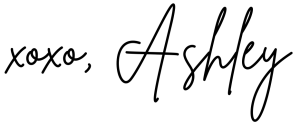

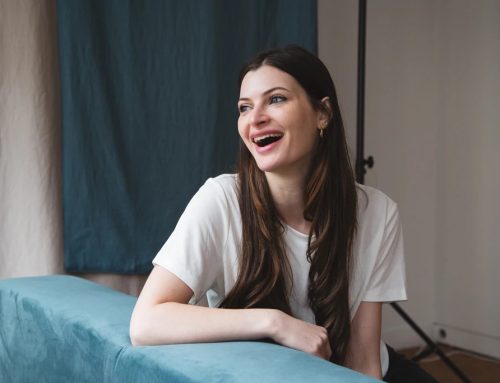
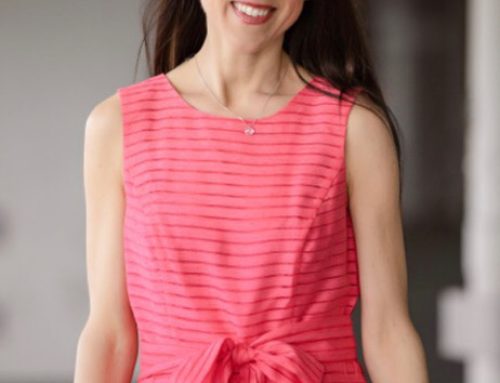

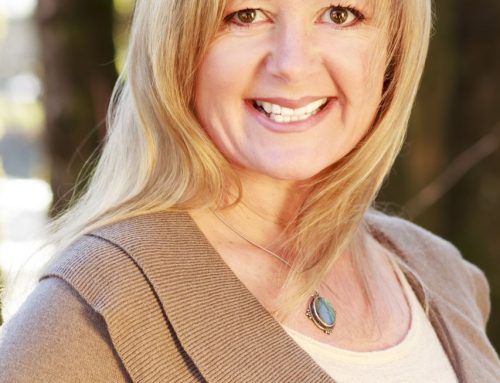
Leave A Comment